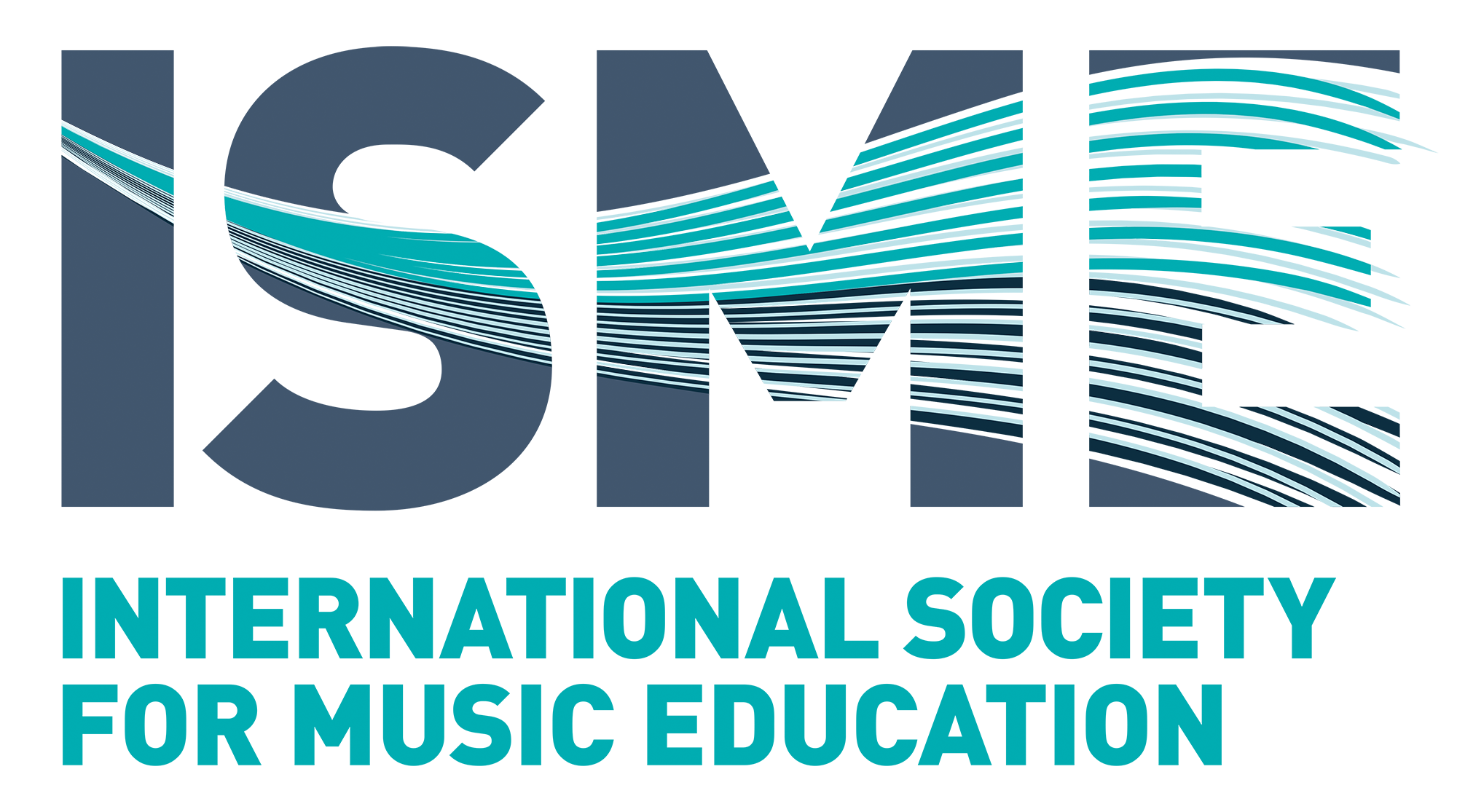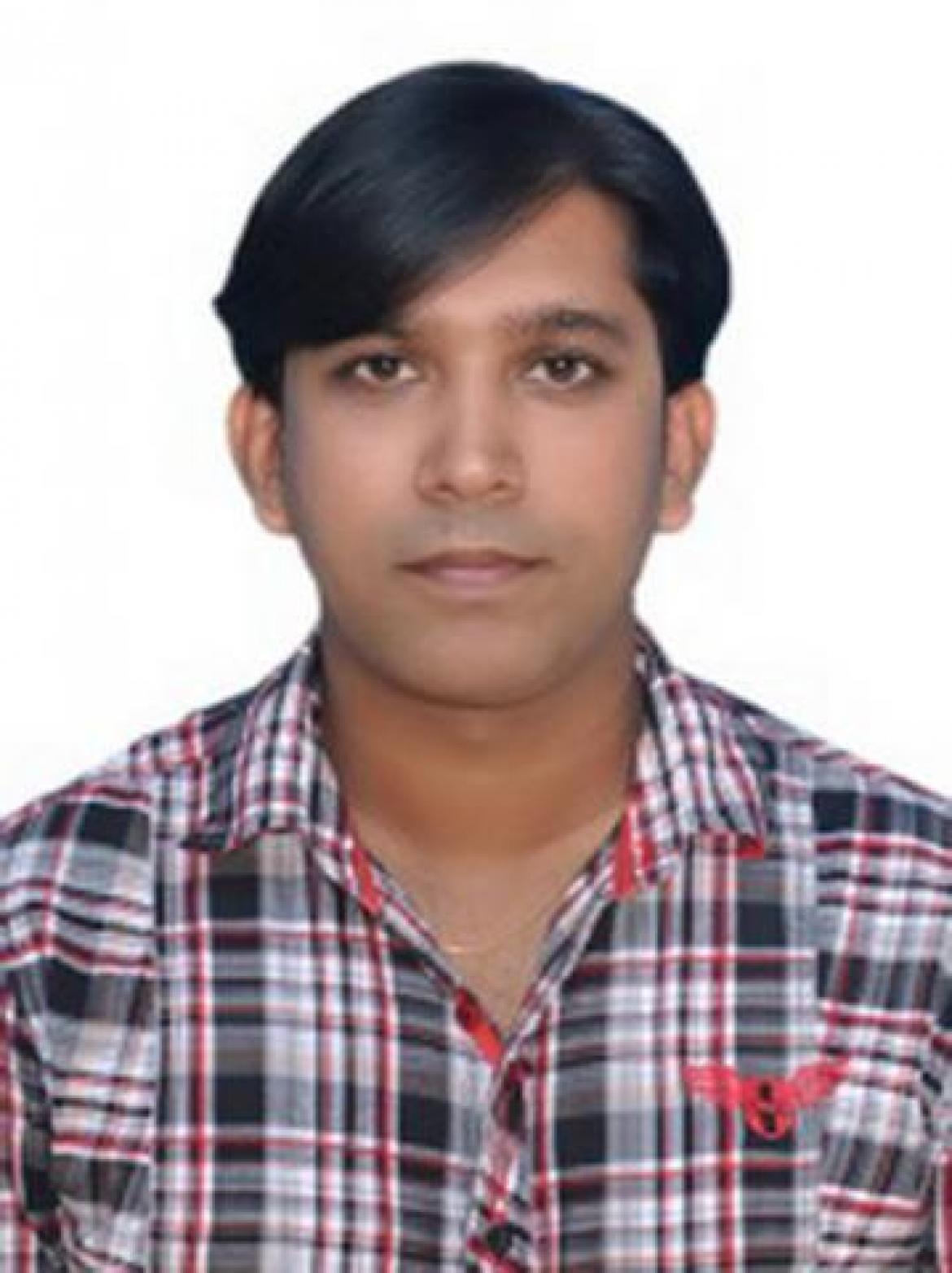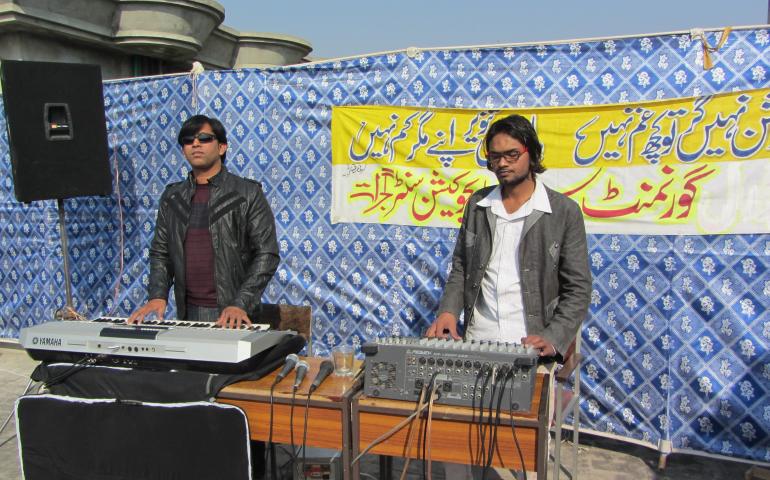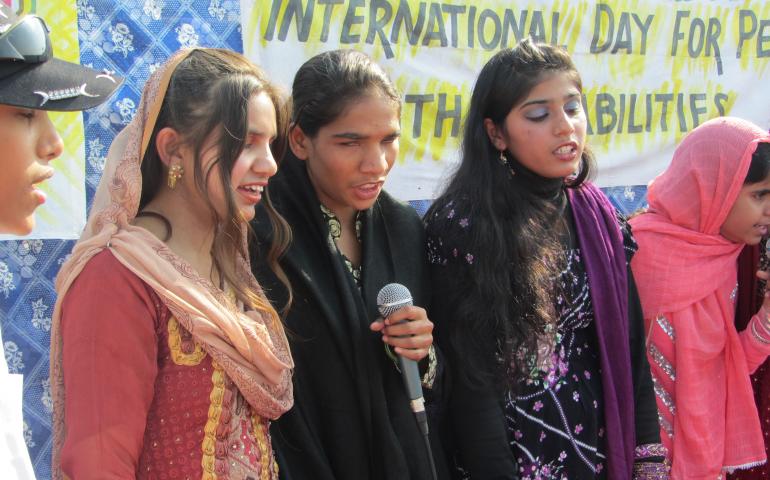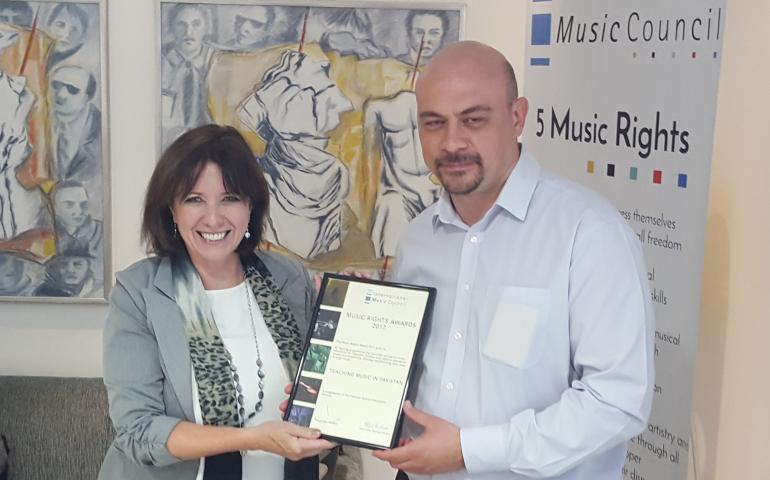In the May 2017 issue of the ISME member newsletter, there was a my music education life article from Arthur Gill, who runs the music programs at a special education centre in Pakistan. Since then, through ISME's support and advocacy, his program recently won the International Music Council's Music Rights Award. Thanks go to past president Sheila Woodward for assisting with the development of the submission to the IMC. Proposals for this award are not open to individuals. They must be submitted through IMC-affiliated organisations, which includes ISME.
Arthur Gill said:
We are very happy that the Pakistan project has been recognised as a laureate of the IMC Music Rights Awards, following a proposal submitted by ISME. This recognition will lead us to work within our community with more dedication and devotion. In addition, a grant of US$2,000 from ISME will be used to buy some local instruments and music teaching aids for schools involved in teaching music to children with disabilities. We are very thankful to ISME for this grant and making our project sustainable for coming years.
Thank you for your support!
Past president Sheila Woodward said:
At the IMC General Assembly held in Paphos in June, 2017, it was my honor to accept the IMC Music Rights Award on behalf of Arthur Gill, Music Educator who has been teaching at the Pakistan Special Education Center (PSEC) since 2002. In my speech, I highlighted the special skills and caring needed to work with children with exceptionalities and that ISME had been proud to sponsor Mr. Gill’s outstanding work over several years.
Here is an outline of their work:
Music Education Project for Children with Exceptionalities in Pakistan win IMC Music Rights Award 2017
Arthur Gill
Project Director/ Music Director, Special Education Center, Gujrat, Pakistan.
The Pakistan Special Education Centre in Gujrat City, Pakistan serves a variety of local children with varying exceptionalities. Music educator Arthur Gill has been teaching at the Pakistan Special Education Center (PSEC) since 2002. What began with 80 students (girls and boys aged from 5-15 years old) participating in community music activities is aiming for 500 students in 2017. The students belong to poor families that have income less than $100 US per month. There is no infrastructure for special education or music education in Pakistan for children with severe intellectual, physical and speech/language impairments. Arthur Gill and his team set a target to achieve and strive to gain excellence in the field of music and special education in Pakistan.
In Pakistan, there are limited or no services for children with physical and intellectual disabilities either in the public school system or from outside services. Since most of our children involved in the project are living below poverty level, they are often viewed as second class citizens and are not included in everyday activities in the community. There are no state-funded services either medical or educational for these children and frequently the religious beliefs of a portion of the community do not support arts education of any kind. Isolated globally, we have strived over the past four years to engage the students internationally through Skype and collaboration with special education instructors internationally.
Considering the importance of music for teaching the special children, we are trying our best to use music as an important tool in teaching this population. We have been successful in convincing the parents that music can help a lot in the process of learning. Our success in this regard indicates that we are changing minds and bringing about a positive change in the society.
We aim to provide such musical activities to our children with special needs. Modern music technology attracts the students and they develop the tendency to explore this charming side of technology. This sharpens their minds along with learning something productive.
Throughout this project we heard different voices including parents, teachers and above all, the children (participants) themselves, both in conversation and music making. Music is used as a tool to reach specific goals, which can include: mental stimulation, self-expression, self-awareness, social interaction, communication or increased motor development, among children with disabilities.
We are very happy that the Pakistan project has been recognised as a laureate of the IMC Music Rights Awards, following a proposal submitted by ISME. This recognition will lead us to work within our community with more dedication and devotion. In addition, a grant of US$2,000 from ISME will be used to buy some local instruments and music teaching aids for schools involved in teaching music to children with disabilities. We are very thankful to ISME for this grant and making our project sustainable for coming years.
Thank you for your support!
